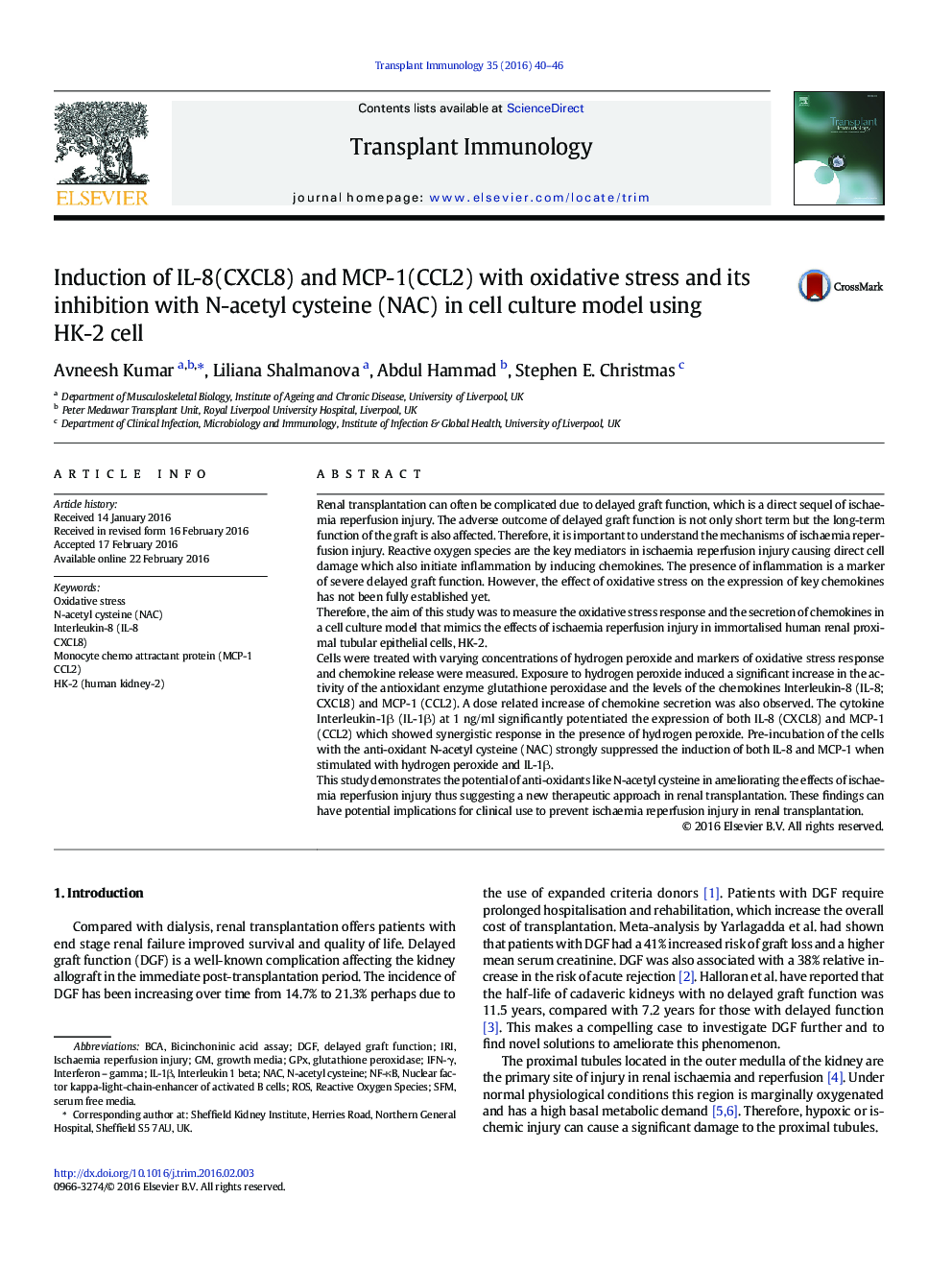| Article ID | Journal | Published Year | Pages | File Type |
|---|---|---|---|---|
| 3392016 | Transplant Immunology | 2016 | 7 Pages |
•Oxidative stress is involved in ischaemia-reperfusion injury which also induces chemokines.•Proximal tubular cell when exposed to hydrogen peroxide induced antioxidant enzyme glutathione peroxidase.•Hydrogen peroxide also induced chemokines like IL-8 and MCP-1.•Pre-incubation with anti-oxidant N-acetyl cysteine (NAC) was able to inhibit induction of both chemokines.
Renal transplantation can often be complicated due to delayed graft function, which is a direct sequel of ischaemia reperfusion injury. The adverse outcome of delayed graft function is not only short term but the long-term function of the graft is also affected. Therefore, it is important to understand the mechanisms of ischaemia reperfusion injury. Reactive oxygen species are the key mediators in ischaemia reperfusion injury causing direct cell damage which also initiate inflammation by inducing chemokines. The presence of inflammation is a marker of severe delayed graft function. However, the effect of oxidative stress on the expression of key chemokines has not been fully established yet.Therefore, the aim of this study was to measure the oxidative stress response and the secretion of chemokines in a cell culture model that mimics the effects of ischaemia reperfusion injury in immortalised human renal proximal tubular epithelial cells, HK-2.Cells were treated with varying concentrations of hydrogen peroxide and markers of oxidative stress response and chemokine release were measured. Exposure to hydrogen peroxide induced a significant increase in the activity of the antioxidant enzyme glutathione peroxidase and the levels of the chemokines Interleukin-8 (IL-8; CXCL8) and MCP-1 (CCL2). A dose related increase of chemokine secretion was also observed. The cytokine Interleukin-1β (IL-1β) at 1 ng/ml significantly potentiated the expression of both IL-8 (CXCL8) and MCP-1 (CCL2) which showed synergistic response in the presence of hydrogen peroxide. Pre-incubation of the cells with the anti-oxidant N-acetyl cysteine (NAC) strongly suppressed the induction of both IL-8 and MCP-1 when stimulated with hydrogen peroxide and IL-1β.This study demonstrates the potential of anti-oxidants like N-acetyl cysteine in ameliorating the effects of ischaemia reperfusion injury thus suggesting a new therapeutic approach in renal transplantation. These findings can have potential implications for clinical use to prevent ischaemia reperfusion injury in renal transplantation.
